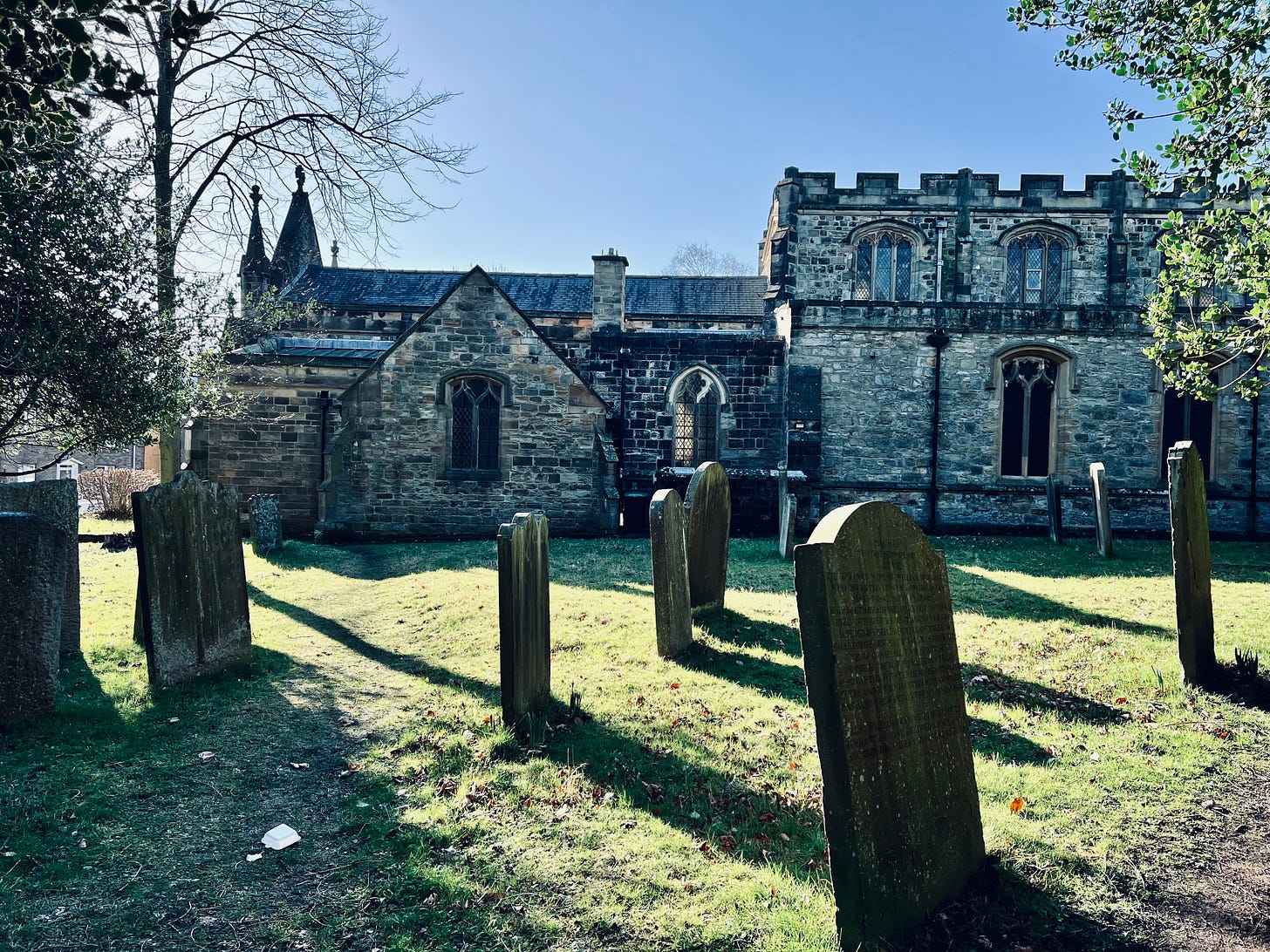Who puts a graveyard by a church?
Modern societies are organized so that you have to go out of your way to honor the dead. We don’t ordinarily put cemeteries near city centers. You won’t find graveyards by shopping malls or event centers. In most modern cities, the dead are buried on the edges of town.
Now, there are practical reasons for this, of course. You need land, space for all those who are to be buried.
But it was not always this way. For centuries, cities shaped by Christian convictions put graveyards by churches. Visit any old church in England— to pick just one European country— and you’ll find yourself walking past the saints on your way into worship.
And that is precisely the point. These are the “great cloud of witnesses” the writer of Hebrews speaks of (Heb. 12:1). These are the ones who are absent from the body and present with the Lord (2 Cor. 5:8), the ones who remind us that this world is not all there is.
Christians do not trivialize death. We ought not peddle lies that death is just the opening of the cage for the soul to fly free, or that God needed another angel or some trite rot like that. We are free to name death as an “enemy” as St. Paul does— the last enemy to be defeated (1 Cor. 15:26).
And yet Christians do not fear death either. To the great shock of the Romans, the first Christians did not flinch at the threat of death. They would not and could not deny Christ or recant their testimony of his resurrection even in the face of torture and death. In fact, it was precisely because they believed that Jesus Christ had been raised from the dead that they did not fear their own death. They were counting on God to do for them what he had done for Jesus on that first Easter morning.
So for us, hope is not mere optimism— wishing and “hoping” for things to change, to be different.
Hope is not escapism— biding our time until we get taken away to streets of gold far up in the sky.
And, as every Christian knows, hope is certainly not progress— the notion that humans will figure this thing out and eventually make the world a better place.
Christian hope is, in a word, resurrection. It is the confident assurance that God will do for the whole of creation what he has done for Jesus—and he will do it because of what he did for Jesus. The resurrection of Jesus is, as NT Wright said, the means and the model for our own hope. God will bring creation and all who are in Christ through death to the other side, to resurrection. That is the meaning of new creation. It is coming, and creation can feel it. That is why it groans (Rom. 8:19-23).
And yet, new creation is already here. For all who put their faith in Jesus the Risen One, behold, old things have passed away, and the new has already come (2 Cor. 5:17).
This is real hope. This is the good news of Eastertide. It is not a wish, for we are foretasting it now. It is not an empty promise, for we have received the downpayment.
For as much as Lent (six weeks) is a sober-minded, humble, sharing in the sufferings of Christ that focuses on the mortification of the flesh, Eastertide (seven weeks!) must be an unrestrained, joyful participation in the victory of Christ that anticipates the resurrection of the body.
As the Nicene Creed teaches us to say, “We look for the resurrection of the dead and the life of the world to come.”
This is what the graveyards say as we pass them on our way to worship.
Thanks be to God.




